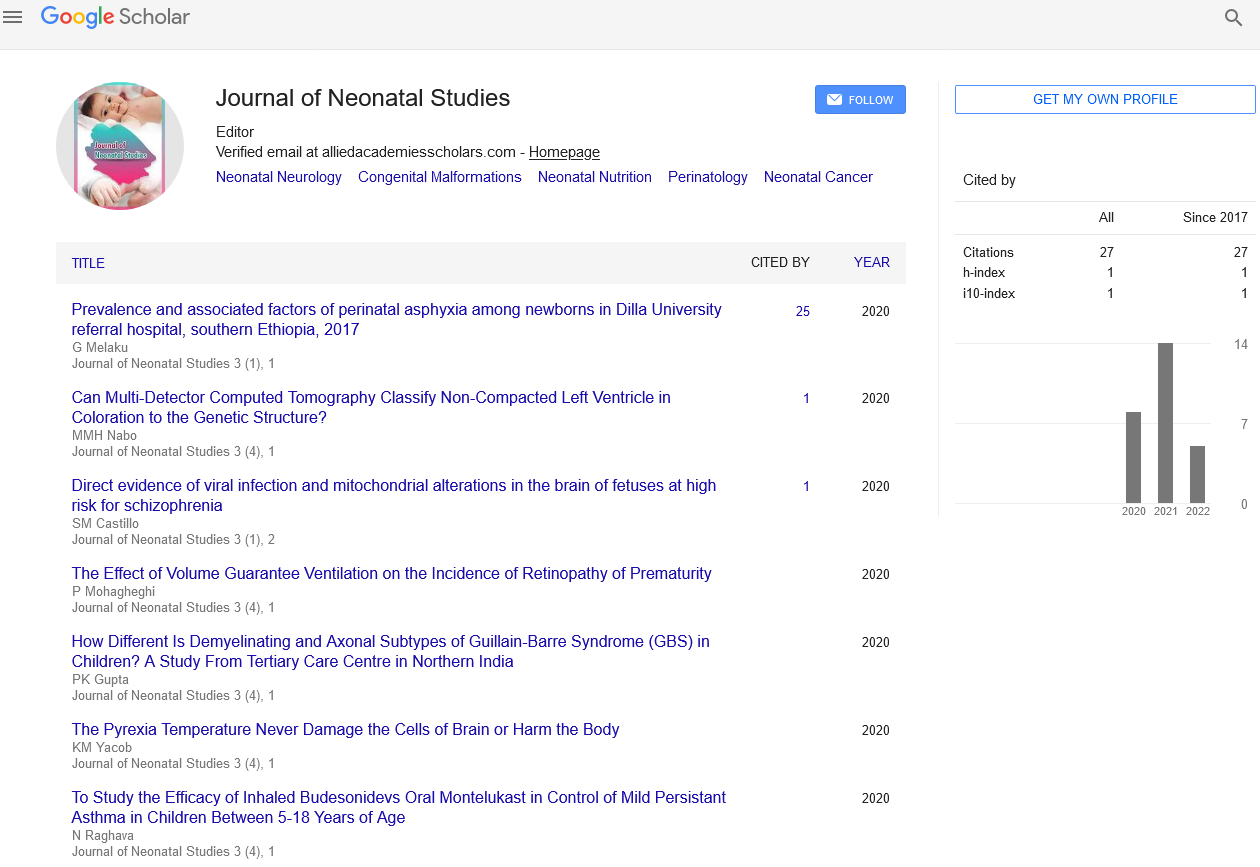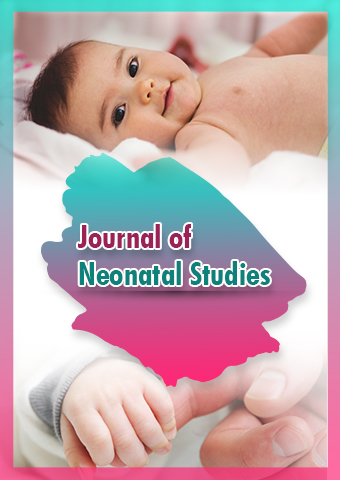Perspective - Journal of Neonatal Studies (2024) Volume 7, Issue 2
Embracing Diversity: Nurturing Infants Born with Disabilities
- Corresponding Author:
- Zendaya Makena
Department of Neonatal-Perinatal Medicine, University of Michigan, USA
E-mail: makenanzendaya@et.jsi.com
Received: 01-Mar-2024, Manuscript No. JNS-24-130011; Editor assigned: 04-Mar-2024, PreQC No. JNS-24-130011 (PQ); Reviewed: 18-Mar-2024, QC No. JNS-24-130011; Revised: 02-Apr-2024, Manuscript No. JNS-24-130011 (R); Published: 09-Apr-2024, DOI: 10.37532/JNS.2024.7(2).207-208
Introduction
The birth of a child is a profound moment filled with hope, dreams, and anticipation. However, when a newborn arrives with a disability, it can bring a range of emotions, challenges, and uncertainties for parents and caregivers. Despite the initial shock and adjustment, welcoming an infant born with disabilities into the world can be a journey of profound love, resilience, and growth. In this article, we explore the experiences of families navigating the complexities of raising infants with disabilities, the importance of support networks, and strategies for promoting their well-being and development.
Description
Understanding disabilities in infants
Disabilities in infants can manifest in various forms, ranging from physical impairments and developmental delays to sensory, cognitive, or neurological differences. These disabilities may be congenital, present at birth, or acquired due to genetic factors, prenatal exposure to toxins or infections, birth complications, or other medical conditions. Common types of disabilities in infants include:
Physical disabilities: Physical disabilities affect an infant’s mobility, coordination, and physical functioning. Examples include cerebral palsy, spina bifida, limb differences, and muscular dystrophy.
Developmental disabilities: Developmental disabilities impact a child’s cognitive, language, social, or emotional development. Conditions such as Down syndrome, autism spectrum disorder, and intellectual disabilities fall into this category.
Sensory disabilities: Sensory disabilities affect an infant’s ability to perceive and process sensory information. This includes vision impairments, hearing loss, and sensory processing disorders.
Medical conditions: Some infants may be born with complex medical conditions or chronic illnesses that require ongoing medical management and support, such as congenital heart defects, metabolic disorders, or genetic syndromes.
Navigating the journey of parenthood
The news of a child’s disability can evoke a range of emotions for parents, including shock, grief, fear, and uncertainty about the future. It’s essential for parents to allow themselves time to process their emotions and seek support from loved ones, healthcare professionals, and disability advocacy organizations. While the journey of parenting a child with disabilities may present unique challenges, it can also be a source of profound joy, resilience, and personal growth.
Building a support network: Connecting with other parents of children with disabilities can provide invaluable support, empathy, and practical advice. Online forums, support groups, and parent advocacy organizations offer opportunities for parents to share experiences, resources, and coping strategies.
Accessing resources and services: Parents should explore available resources and services to support their child’s development and well-being. This may include early intervention programs, therapy services (such as physical therapy, occupational therapy, and speech therapy), special education services, and assistive technology.
Advocating for their child: Parents play a crucial role in advocating for their child’s rights, needs, and inclusion in various settings, including healthcare, education, and community activities. This may involve working with healthcare providers, educators, policymakers, and community organizations to ensure that their child receives appropriate support and accommodations.
Embracing their child’s potential: While raising a child with disabilities may present challenges, it’s essential for parents to focus on their child’s strengths, abilities, and unique qualities. Celebrating milestones, fostering independence, and promoting self-esteem can empower children to thrive and reach their full potential.
Promoting well-being and development
Creating a nurturing and inclusive environment is essential for promoting the well-being and development of infants born with disabilities. By focusing on their unique needs, abilities, and interests, caregivers can support their physical, emotional, and social growth.
Early intervention: Early intervention services play a critical role in supporting infants’ development and addressing areas of delay or impairment. These services, which may include therapy, educational support, and family counseling, are tailored to meet the individual needs of each child and family.
Encouraging exploration and play: Providing opportunities for infants to explore their environment, engage in sensory-rich experiences, and play with age-appropriate toys can promote cognitive development, sensory integration, and motor skills. Adapted toys and equipment may be used to accommodate children’s specific needs and abilities.
Fostering communication: Communication is essential for infants to express their needs, emotions, and preferences. Caregivers can support communication development through gestures, facial expressions, sign language, and Augmentative and Alternative Communication (AAC) devices, as appropriate.
Creating inclusive environments: Inclusive environments that embrace diversity and accommodate children’s unique needs are essential for promoting social inclusion and belonging. This may involve making physical modifications, providing access to assistive devices or technologies, and fostering a culture of acceptance and respect.
Collaborating with healthcare providers: Regular communication and collaboration with healthcare providers, therapists, educators, and other professionals are essential for coordinating care, monitoring progress, and addressing emerging needs or concerns. Caregivers should actively participate in their child’s care team and advocate for comprehensive, person-centered services.
Conclusion
Raising an infant born with disabilities is a journey filled with ups and downs, challenges, and triumphs. While the path may be uncertain at times, caregivers are guided by love, determination, and a commitment to nurturing their child’s potential. By building support networks, accessing resources and services, advocating for their child’s rights, and fostering a nurturing environment, caregivers can create a foundation for their child to thrive and flourish.
As society continues to evolve, embracing diversity and promoting inclusivity are essential for creating a world where all children, regardless of ability, are valued, respected, and supported in reaching their full potential. Through education, advocacy, and collective action, we can build a more inclusive society where every child has the opportunity to shine and make meaningful contributions to the world.

